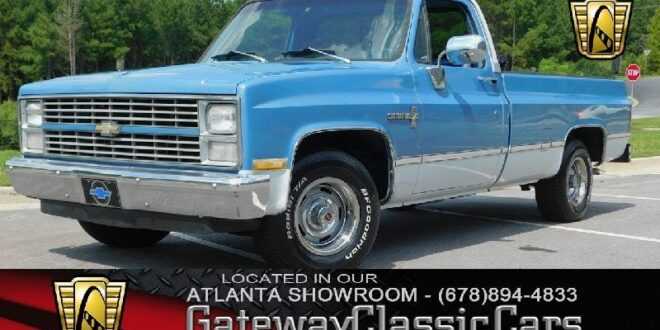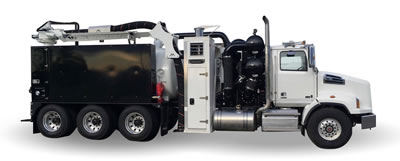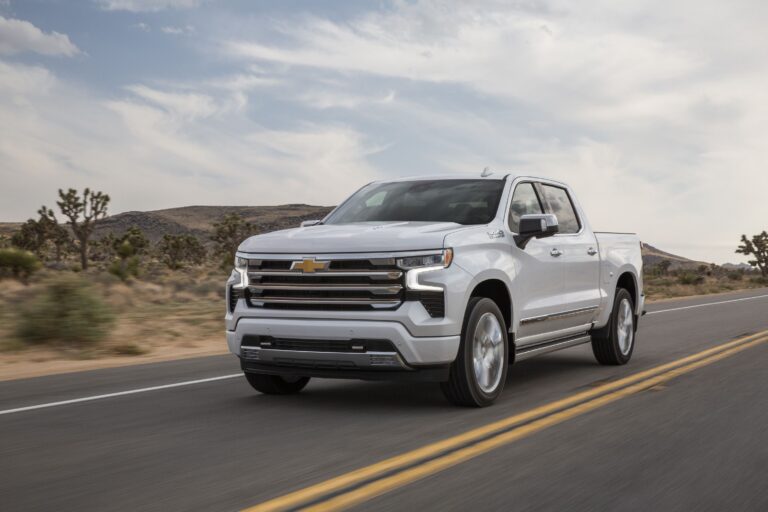3/4 Ton Work Trucks For Sale: Your Comprehensive Guide to Finding the Perfect Workhorse
3/4 Ton Work Trucks For Sale: Your Comprehensive Guide to Finding the Perfect Workhorse cars.truckstrend.com
In the world of commercial and heavy-duty personal use, the 3/4 ton work truck stands as a quintessential workhorse. Striking an ideal balance between the agility of a light-duty half-ton and the sheer muscle of a one-ton behemoth, these trucks, often identified as 2500 or 250 series, offer the perfect blend of enhanced capability, durability, and versatility. For businesses and individuals requiring more than just basic hauling and towing, but without the need for a full-blown commercial rig, a 3/4 ton truck is often the sweet spot. Whether you’re a contractor, landscaper, farmer, or an avid RVer, understanding the nuances of these formidable vehicles is crucial before making a purchase. This comprehensive guide will navigate you through everything you need to know about 3/4 ton work trucks for sale, helping you make an informed decision that perfectly matches your needs and budget.
3/4 Ton Work Trucks For Sale: Your Comprehensive Guide to Finding the Perfect Workhorse
Understanding the "3/4 Ton" Designation: What Does It Really Mean?
The "3/4 ton" designation is largely a historical throwback, originating from a time when these trucks could literally carry a 1,500-pound payload (3/4 of a ton). In modern terms, this classification refers to a truck’s Gross Vehicle Weight Rating (GVWR), which is the maximum permissible total weight of the truck itself, plus passengers, cargo, and any accessories. Today’s 3/4 ton trucks far exceed their nominal payload capacity, often boasting capacities ranging from 3,000 to over 4,000 pounds, and towing capabilities well into the five-figure range.
They bridge the gap between:
- Half-ton (1500/150 Series): Designed for lighter tasks, daily driving, and recreational use, with lower payload and towing limits.
- One-ton (3500/350 Series): Built for maximum payload and towing, often featuring dual rear wheels (duallies) for stability with very heavy loads.
The 3/4 ton truck provides a significant step up in robust components, larger brakes, stronger frames, and more powerful engine options compared to its half-ton counterpart, without the higher cost, increased fuel consumption, or reduced maneuverability often associated with one-ton trucks.

Why Choose a 3/4 Ton Work Truck? Key Benefits and Applications
The popularity of 3/4 ton work trucks stems from their compelling list of advantages that cater to a wide array of demanding tasks.
- Enhanced Payload Capacity: This is perhaps the most significant benefit. With capabilities often exceeding 3,000 pounds, a 3/4 ton truck can comfortably haul heavy tools, multiple sheets of plywood, bags of concrete, gravel, or a full bed of landscaping materials without straining the suspension or powertrain.
- Superior Towing Capability: Need to pull a large utility trailer, a substantial boat, an excavator, or a fifth-wheel camper? 3/4 ton trucks are engineered for serious towing. Many models offer conventional towing capacities upwards of 15,000 pounds, and fifth-wheel/gooseneck ratings that can approach or exceed 20,000 pounds, thanks to their stronger frames, heavy-duty axles, and more robust braking systems.
- Durability and Longevity: Built with heavier-duty components throughout – from the suspension and chassis to the transmission and differentials – these trucks are designed to withstand constant heavy loads and rigorous use. This translates into greater reliability and a longer service life, particularly when properly maintained.
- Versatility and Customization: 3/4 ton trucks are highly adaptable. They serve as ideal platforms for various upfits, including utility bodies, flatbeds, dump beds, service bodies, and snow plow packages, making them indispensable for plumbers, electricians, landscapers, construction crews, and municipal operations.
- Powerful Engine Options: Unlike most half-tons, 3/4 ton trucks typically offer powerful gasoline V8 engines and, crucially, robust turbodiesel engines. Diesel engines provide immense torque at low RPMs, making them ideal for heavy towing and hauling, and often offer better fuel economy when under load.
- Strong Resale Value: Due to their inherent utility and durability, 3/4 ton work trucks tend to hold their value well, representing a solid investment whether you plan to use it for years or eventually trade it in.


Key Considerations When Buying a 3/4 Ton Work Truck
Purchasing a 3/4 ton truck is a significant investment, and careful consideration of several factors will ensure you get the right vehicle for your specific needs.
- New vs. Used:
- New: Offers the latest technology, full factory warranty, and often better financing options. However, it comes with a higher upfront cost and immediate depreciation.
- Used: A more budget-friendly option, with a wider selection of models and trims. Depreciation has already occurred, offering potentially better value. The trade-off is often a limited or no warranty, and the need for a thorough inspection.
- Engine Type: Gasoline vs. Diesel:
- Gasoline: Lower upfront cost, simpler and less expensive maintenance, often quieter. Ideal if your heavy towing/hauling is intermittent or shorter distances.
- Diesel: Higher upfront cost, more expensive and complex maintenance (e.g., DEF fluid, specific oil changes), but offers superior torque for heavy loads, better fuel economy when towing, and a longer engine lifespan. Essential for frequent, heavy towing over long distances.
- Cab Configuration:
- Regular Cab: Two doors, single row of seats. Best for pure utility, maximizing bed length relative to overall vehicle length.
- Extended/Quad Cab: Two full-size front doors and two smaller rear doors (or suicide doors). Offers limited rear seating or extra secure storage space.
- Crew Cab: Four full-size doors, spacious rear seating. Ideal for carrying a work crew or family comfortably.
- Bed Length:
- Short Bed (approx. 5.5-6.5 ft): Better maneuverability, easier parking.
- Standard Bed (approx. 6.5-6.8 ft): A good compromise for most uses.
- Long Bed (approx. 8 ft): Maximizes cargo capacity, essential for carrying full sheets of plywood or long lumber.
- Drivetrain: 2WD vs. 4WD:
- 2WD (Two-Wheel Drive): Typically rear-wheel drive (RWD) for trucks. Lighter, less expensive, slightly better fuel economy. Suitable for paved roads and light-duty off-road.
- 4WD (Four-Wheel Drive): Essential for off-road conditions, unpaved job sites, snow, and ice. Adds weight, cost, and complexity.
- GVWR, Payload, and Towing Needs: Crucially, calculate your actual maximum payload (truck, passengers, cargo, tongue weight of trailer) and maximum trailer weight. Don’t just estimate; know your numbers. Ensure the truck’s ratings exceed your needs to provide a safety margin.
- Features and Upgrades: Consider options like integrated trailer brake controllers, tow mirrors, bed liners, bed covers, utility boxes, snow plow prep packages, and advanced safety features.
Top Manufacturers and Popular 3/4 Ton Models
The 3/4 ton segment is dominated by a few key players, each offering compelling options with their unique strengths:
- Ford F-250 Super Duty: Known for its robust Power Stroke diesel engine, impressive towing capabilities, and innovative features like Pro Power Onboard (integrated generator). A perennial favorite for heavy work.
- Ram 2500: Stands out with its coil-spring rear suspension (or optional air suspension), providing a smoother unladen ride than competitors, while still offering immense towing and hauling with its Cummins diesel engine option. Its interior quality is often lauded.
- Chevrolet Silverado 2500HD: Features powerful gasoline and Duramax diesel engine options paired with the renowned Allison transmission. Known for its strong work ethic, comfortable interior, and user-friendly technology.
- GMC Sierra 2500HD: The upscale twin of the Silverado, offering similar mechanicals but with more premium styling, interior materials, and exclusive features like the MultiPro tailgate.
Where to Find 3/4 Ton Work Trucks For Sale
The search for your ideal 3/4 ton truck can begin in several places, each with its own advantages and disadvantages:
- New Car Dealerships: Best for the latest models, full warranties, and new vehicle incentives. They also offer financing and trade-in options.
- Used Car Dealerships: A vast inventory of used trucks, often with certified pre-owned (CPO) options that include limited warranties. Prices are generally lower than new.
- Online Marketplaces: Websites like AutoTrader, Cars.com, Kelley Blue Book, and eBay Motors offer extensive listings from both dealers and private sellers. Facebook Marketplace and Craigslist can also yield local deals, but require extra caution.
- Fleet Auctions/Government Sales: Can be a source of highly depreciated trucks, often with high mileage but potentially good maintenance records. Vehicles are usually sold "as-is," so a thorough inspection is crucial.
- Private Sellers: Often the best source for negotiating lower prices, as there’s no dealership overhead. However, it carries the most risk regarding vehicle history and condition, and no warranty is typically offered.
- Specialized Commercial Truck Dealers: These dealerships often stock upfitted trucks (e.g., with utility bodies, dump beds) and may offer more specialized financing for commercial buyers.
Tips for Inspecting and Purchasing a 3/4 Ton Work Truck
Once you’ve narrowed down your options, here’s how to proceed with confidence:
- Determine Your Needs and Budget: Be realistic about your maximum towing/payload requirements and what you can afford, including insurance and maintenance.
- Research Thoroughly: Read reviews, compare specifications, and understand common issues for specific models and years.
- Pre-Purchase Inspection (PPI): For any used truck, a PPI by an independent, trusted mechanic is non-negotiable. They can identify hidden problems, especially with the engine (particularly diesel), transmission, frame, and suspension.
- Test Drive: Drive the truck both empty and, if possible, with a load similar to what you’ll carry. Pay attention to engine performance, transmission shifts, braking, steering, and any unusual noises. Test all features.
- Check Service Records: A well-maintained truck, especially a diesel, is crucial. Look for consistent oil changes, filter replacements, and any major repairs.
- VIN Check: Run a vehicle history report (CarFax, AutoCheck) to check for accidents, salvage titles, flood damage, odometer tampering, and service history.
- Negotiation: Be prepared to negotiate the price. Research market values for similar trucks in your area.
- Financing and Insurance: Get pre-approved for financing if needed, and obtain insurance quotes before finalizing the purchase.
Estimated Pricing Guide for 3/4 Ton Work Trucks For Sale
Prices for 3/4 ton work trucks vary significantly based on condition, mileage, year, trim level, engine type, and geographical location. The table below provides a general range for common scenarios.
| Category | Model Example | Typical Price Range (USD) | Key Factors Affecting Price |
|---|---|---|---|
| New | Ford F-250 XL (Base) | $45,000 – $60,000+ | Trim level, engine (gas vs. diesel), 4WD, options, dealer incentives |
| New | Ram 2500 Laramie (Mid-High) | $65,000 – $85,000+ | Engine, luxury features, technology packages, dealer incentives |
| New | Chevy Silverado 2500HD High Country (Top) | $75,000 – $95,000+ | Diesel engine, premium interior, advanced safety, specialized packages |
| Used (5-8 Years Old) | Ford F-250 (XLT/Lariat) | $30,000 – $55,000+ | Mileage, condition, engine type, trim, maintenance history, region |
| Used (5-8 Years Old) | Ram 2500 (Big Horn/Laramie) | $32,000 – $58,000+ | Mileage, condition, engine type (Cummins usually higher), features |
| Used (5-8 Years Old) | GMC Sierra 2500HD (SLE/SLT) | $35,000 – $60,000+ | Mileage, condition, Duramax/Allison premium, trim level, options |
| Used (10+ Years Old) | Any 3/4 Ton (Work Truck Trims) | $15,000 – $30,000+ | High mileage, age, significant wear, potential for major repairs, basic features |
| Upfitted Used | (e.g., Service Body, Dump Bed) | Add $5,000 – $20,000+ to base truck price | Type and condition of upfit, specialized equipment included |
Note: These are estimated ranges and can fluctuate widely. Always verify specific vehicle pricing with current market data.
Frequently Asked Questions (FAQ)
Q1: What is the main difference between a 3/4 ton and a 1-ton truck?
A1: The primary difference lies in their Gross Vehicle Weight Rating (GVWR) and consequently, their payload and towing capacities. 1-ton trucks (3500/350 series) have higher GVWRs, allowing for significantly greater payload and towing, often featuring dual rear wheels ("duallies") for enhanced stability with extremely heavy loads. 3/4 ton trucks offer substantial capability without the added bulk and cost of a 1-ton.
Q2: Can a 3/4 ton truck handle a fifth-wheel camper?
A2: Absolutely. Many 3/4 ton trucks are specifically designed to tow large fifth-wheel campers, especially when equipped with a diesel engine and a proper towing package. Always check the truck’s specific fifth-wheel towing capacity and compare it to the camper’s Gross Vehicle Weight (GVW).
Q3: Are diesel 3/4 ton trucks worth the extra cost?
A3: For frequent, heavy towing and hauling, especially over long distances, a diesel engine is often worth the extra upfront cost. Diesels offer superior torque, better fuel economy when under load, and typically have a longer lifespan. However, they come with higher maintenance costs and a higher initial purchase price. For occasional light-duty work, a gasoline engine might be more economical.
Q4: What kind of maintenance does a 3/4 ton truck require?
A4: Due to their heavy-duty nature, 3/4 ton trucks require diligent maintenance. This includes regular oil changes (especially for diesels, which may have longer intervals but require specific oil), transmission fluid changes, differential fluid changes, brake inspections, and tire rotations. Diesel engines also require DEF (Diesel Exhaust Fluid) refills and fuel filter replacements. Following the manufacturer’s recommended service schedule is crucial for longevity.
Q5: How do I determine the right payload capacity for my needs?
A5: To determine your required payload, add the weight of all passengers, cargo in the truck bed, and the tongue weight of any trailer (typically 10-15% of conventional trailer weight, or 15-25% of fifth-wheel/gooseneck trailer weight). Ensure the truck’s listed payload capacity (found on the door jamb sticker) exceeds this total.
Q6: What is GVWR, and why is it important?
A6: GVWR (Gross Vehicle Weight Rating) is the maximum permissible total weight of a fully loaded truck, including the truck itself, all occupants, fuel, cargo, and any accessories. It’s crucial because exceeding the GVWR can compromise safety, handling, braking, and lead to premature wear on components. It’s also a legal limit enforced by law enforcement.
Conclusion
The 3/4 ton work truck stands as an indispensable tool for countless professionals and individuals who demand superior capability without the full-scale commitment of a 1-ton rig. Its impressive blend of payload, towing, durability, and versatility makes it a wise investment for a wide range of applications. By understanding the "3/4 ton" designation, weighing the benefits against your specific needs, diligently researching models, and carefully inspecting potential purchases, you can confidently navigate the market for 3/4 ton work trucks for sale. With the right research and a clear understanding of your requirements, you’ll find a robust and reliable partner ready to tackle the toughest jobs for years to come.





